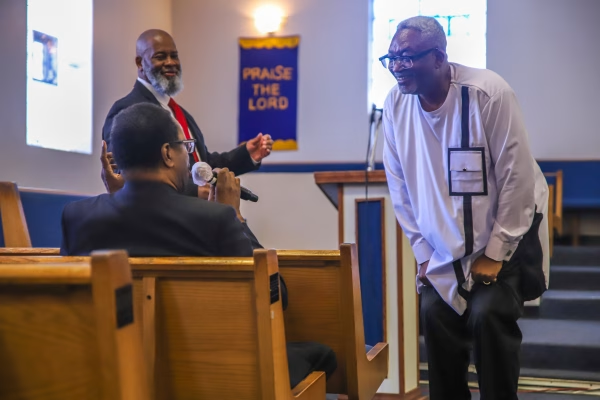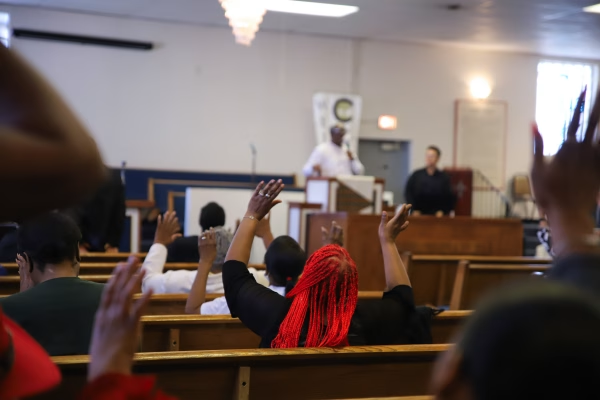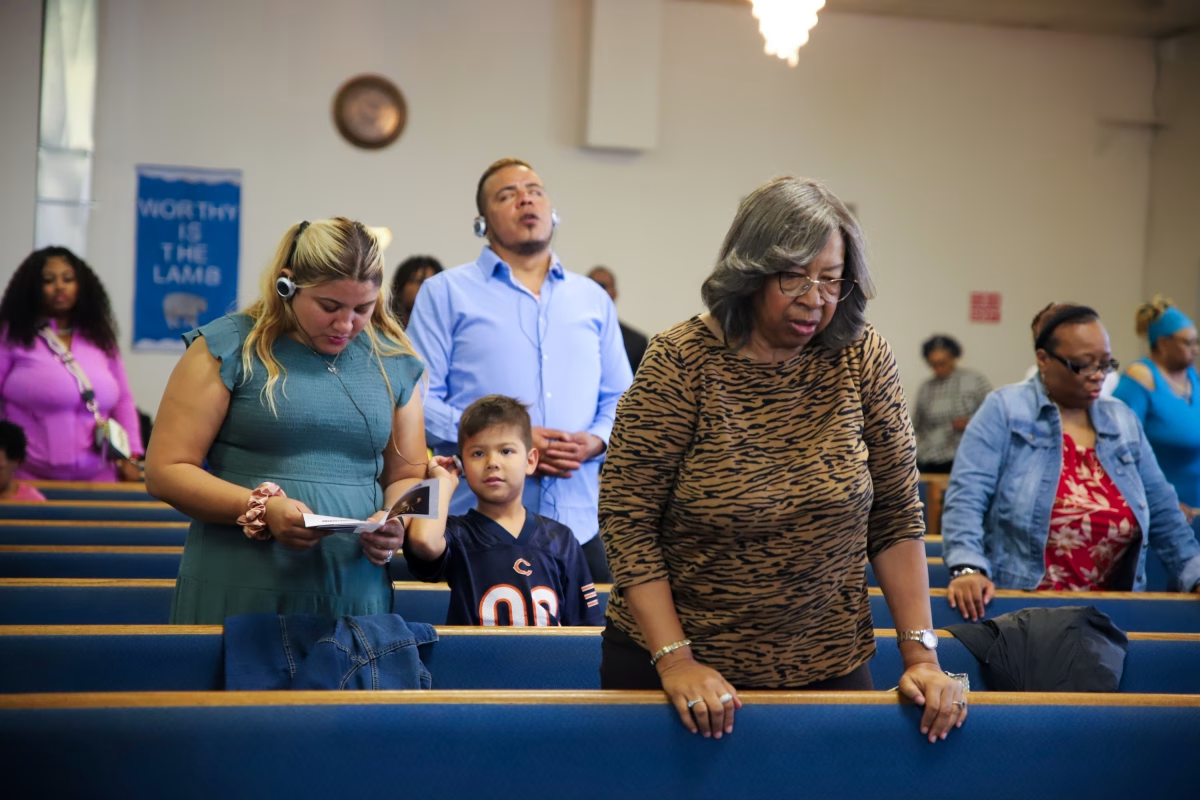The city of Chicago is set to close three migrant shelters this month as the number of buses coming from Texas decrease due to President Joe Biden’s executive order limiting newcomers from entering the country.
Migrant shelters in the Pilsen, West Town and Kenwood neighborhoods will all close by the end of this month. Meanwhile, community leaders are working to help people who are already here — and who’ve struggled to get work permits.
While working with migrants from Venezuela, Honduras and other places, the Rev. Kenneth Phelps has met doctors, lawyers and businessmen who had to sacrifice their careers when they came here, opting for more contractual work because that is what they need to do to survive.
“They’re painting because they’re putting food on the table,” Phelps, a pastor at Concord Missionary Baptist Church, said. “They’re humble, they’re not above the work.”
According to The Associated Press, President Biden “unveiled a halt to asylum processing at the U.S. border with Mexico when illegal entries reach a threshold deemed excessive” in June. Since then, the number of migrants being sent to Chicago has decreased, opening extra beds in the city.
According to Chicago city data, there are currently 5,301 migrants living in the shelters as of Sept. 17. That is a sharp decline from the estimated 12,000 migrants who were living in the shelters last October.
Hundreds more were also staying at O’Hare International Airport because they had nowhere else to go. Due to the decrease in need for shelter, the city is able to consolidate those funds, according to Maggie Rivera, the Community Integration Coordinator for New Life Centers.
New Life Centers is a nonprofit organization that works with new arrivals in Chicago. According to Rivera, the city is set to close the shelters because many beds are unused and “running different shelters throughout the city has been costly.”
Nina Sedeño, the immigration policy analyst for the Latino Policy Forum, agrees.
“I imagine it costs a lot of money to maintain shelters in terms of the infrastructure, the services, hiring the staff to work at these shelters and to make sure that the migrants are safe and being taken care of,” Sedeño said.

Phelps works directly with migrants who come to his church, offering food, English language classes and assistance with work and housing applications. He said the city of Chicago doesn’t want to “create a permanent underclass.”
“You want to give some assistance, but you don’t want to create a dependence that you can’t sustain,” Phelps said.
According to Phelps, a common misconception about the migrant situation is that in helping the migrants, the city is neglecting the marginalized communities that are already here, which Phelps said are often low-income, primarily Black communities. The reason why, according to him, is to “weaken” their “political capital.”
“Why does one culture have to dominate the other culture?” said Phelps, who is Black. “Why can’t we share power?”

At Phelps’s church, they have programs that aim to bridge the gap between Black and Latine communities by encouraging people from both communities to listen to each other’s perspectives. Phelps makes people from each community write down their desires in the workshop and compare them side by side.
In doing so, they realize that they have the same desires: housing, safety, food, a job and healthcare.
“A light bulb goes off,” Phelps said.
The Latino Policy Forum also does similar work. According to Sedeño, the Forum has a multicultural leadership academy that addresses the anti-Black sentiments in the Latine community and vice versa.
“(The academy) brings together black and brown nonprofit leaders to discuss these very issues when it comes to immigration,” Sedeño said.
Phelps said we all need to show more compassion and “be more human” towards one another because the U.S. is a country made up of immigrants.
“All of us have come from somewhere, so we can’t turn our nose up,” Phelps said. “We can’t turn our backs on those in need.”
One of the biggest barriers for migrants is not being able to work legally in the United States. Sedeño said the only government body that can issue a work permit is the federal government. The “immigration system is so backlogged that it can take months for someone to receive a work permit,” Sedeño said.
As a policy organization, the Latino Policy Forum doesn’t work directly with migrants. However, they run a virtual space called the “Welcome to Illinois Coalition” where approximately 100 community-based organizations, philanthropists, faith leaders and elected officials come together to share resources to help the migrants, according to Sedeño.
“At the end of the day, we realize that there’s no one organization, no one person that can do this alone,” Sedeño said. “And so, our job at the forum, we are conveners. We bring folks together.”
On top of struggling to legally access work in this country, Rivera said the migrants are often traumatized from escaping their home countries and going through routes that can be deadly.
Rivera mentioned the “Darien Gap,” which is a 60-mile rainforest stretch between Colombia and Panama, riddled with steep mountains and vast swamps. There is no road, and it has become one of the most utilized ways migrants attempt to get to America as authorities have policed other routes to get across.
Phelps said he tries his best at the church to create a safe space for the migrants who are seeking assistance. His church created a bilingual worship service and serves meals that are authentic to where the migrants came from.
“(The church) is just trying to really give them a little piece of home while they’re here in Chicago,” Phelps said.
Related Stories:
- Exhibit in Chicago Shows How Migrant Women Embroider Their Way to New Lives, ‘Poco a Poco.’
- More Venezuelan migrants in Chicago take English classes with hopes of improving their employability
- ‘A perfect storm’: Migrants face legal barriers, paused services and a 60-day limit at shelters as the city’s budget rapidly dwindles
Support Student Journalism!
The DePaulia is DePaul University’s award-winning, editorially independent student newspaper. Since 1923, student journalists have produced high-quality, on-the-ground reporting that informs our campus and city.
We rely on reader support to keep doing what we do. Donations are tax deductible through DePaul's giving page.


